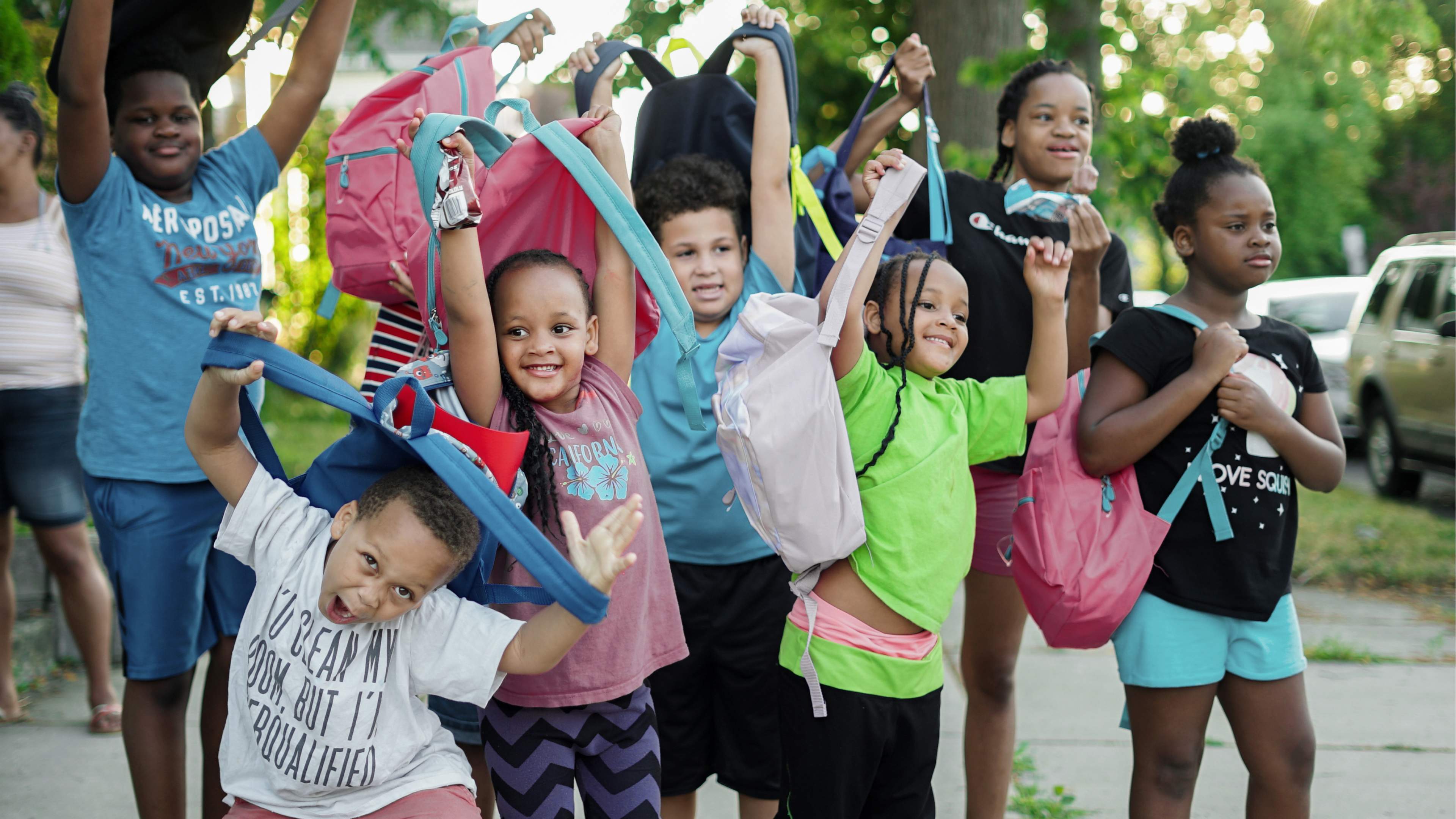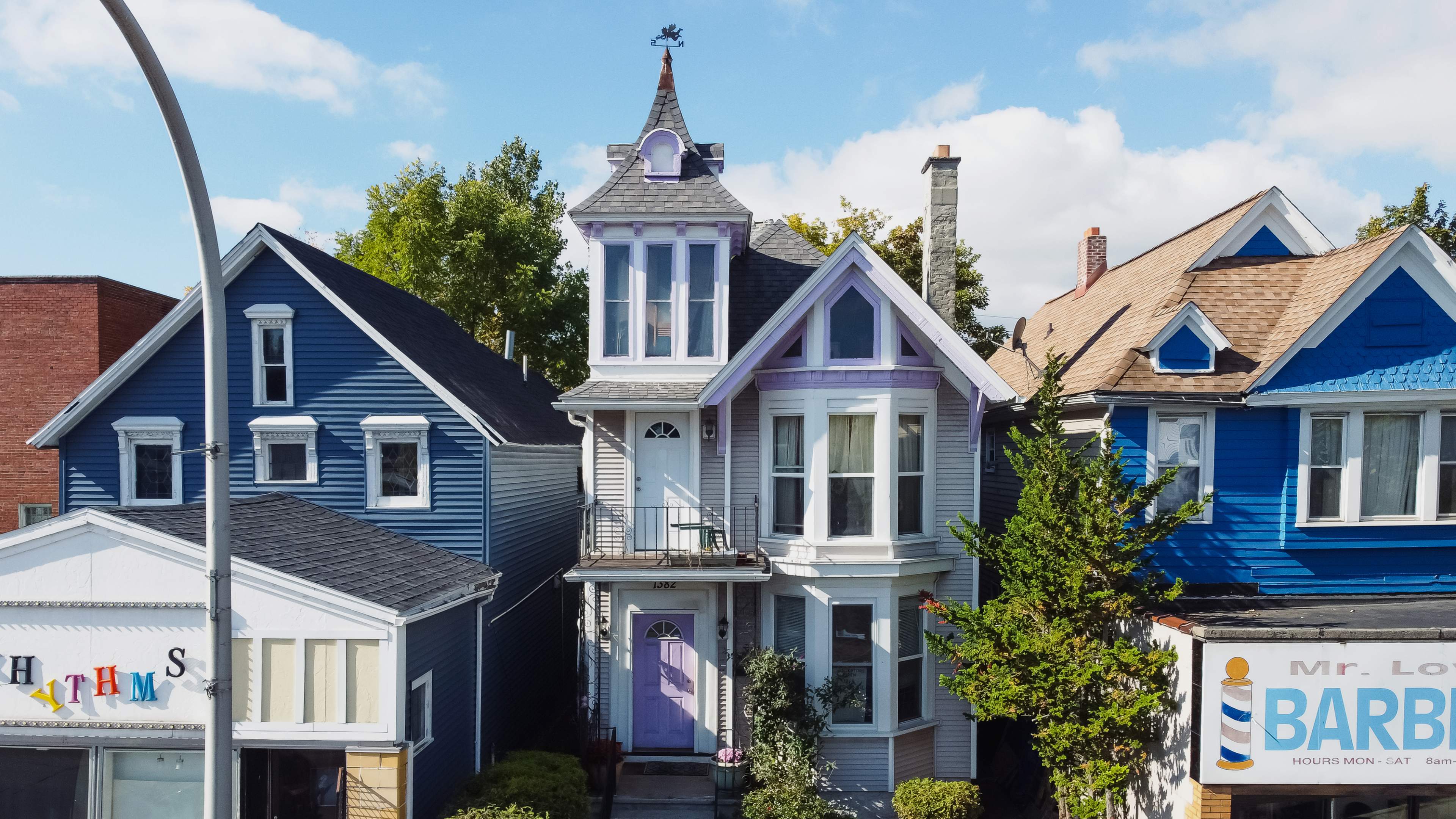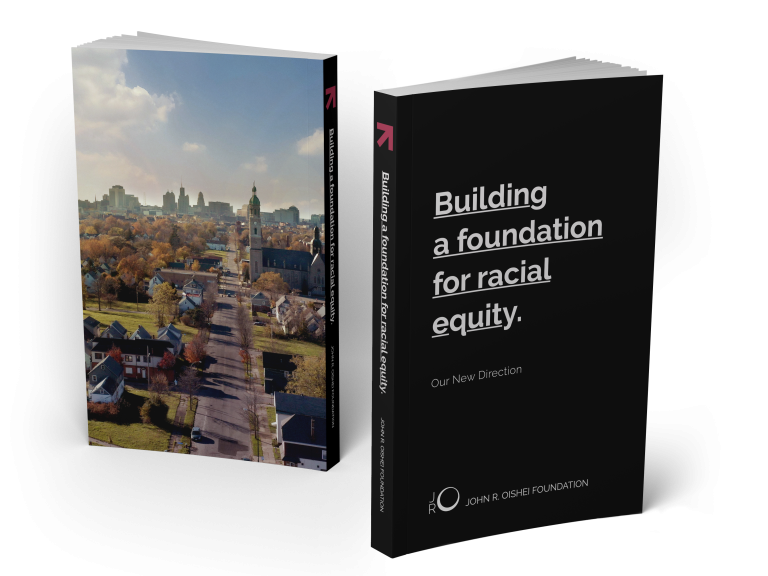Real Change Requires Real Commitment.
To equity. To community. To justice.
As we work with communities to change systems and build financial prosperity for a racially-just, vibrant Buffalo-Niagara region, our work begins with acknowledging the racial inequities that have shaped Buffalo’s East Side, while also honoring the abundance, power, and strength of its residents.
Buffalo’s East Side is home to proud, resilient communities–rich in culture, leadership, and legacy, and building toward a thriving future.
The Foundation’s work is to support that power–not to control it. We’re standing with neighborhood residents, leaders and organizations that challenge systems and get at the root cause of inequities.
Join our team.
We’re excited to announce two new opportunities to join our Community Impact team. While each role focuses on different aspects of the work, they are united by a shared commitment to trust, partnership, and lasting change.
Learn more about the Community Impact Program Director, Organizational Power position.
Learn more about the Community Impact Program Director, Joy, Restoration, & Resilience / Individual Power position.

East Side Kids; Aitina Fareed-Cooke, 2019

Community Power Building is Systems Change.
At the heart of our strategic direction is Community Power Building–working alongside those who are shaping change from the ground up.
Read More
Doing Philanthropy Differently.
It starts with how we show up. We’re practicing trust-based philanthropy–building relationships, cutting red tape, and working toward partnering with more openness, accountability, care, and trust.
By removing barriers and centering relationships, we hope partners can spend more time leading change, not filling out paperwork.
We recognize these important shifts will take time, and will impact many. Through the challenges ahead, our commitment to real change will not waver.
Please join us on this journey. Keep up with our news, stories and updates.

Jefferson Avenue on Buffalo’s East Side; Kalvin Booker, 2024
About the Oishei Foundation
For decades, the Oishei Foundation has supported a diverse group of hard-working organizations and individuals, all dedicated to building a thriving community. In the fall of 2023, building on our existing racial equity work, we shifted our focus to address the root causes of racial inequity, starting with Black communities on Buffalo’s East Side.
Mission
We work with communities to change systems and build financial prosperity for a racially just, vibrant Buffalo-Niagara region.
Vision
A thriving, prosperous community for all, where diversity is our strength.
Values
- Act against racism: We are actively countering racism and the systemic barriers faced by Black and other residents of color in our region.
- Build on strengths: We center colleagues’ and communities’ agency, strengths, resources, and opportunities.
- Be trustworthy: We build and sustain trust through transparency, accountability, and humility.
- Work together: We listen to collaborate and build partnerships—across sectors and across differences.
- Make a difference: We achieve positive impacts by investing in our own and the region’s capacity to learn, improve, and change.
A lasting legacy
The foundation is named after our founder John R. Oishei, a local industrialist and philanthropist who founded Trico Products, Inc.
Our Team
Allison Geddes, MSW
Annie Todd, MSW
Christina P. Orsi
Curtis W. Robbins
Geoffrey Pritchard
Linda Gloss-Ball
Mark J. Scott, Ph.D
Natalie Cook
Pamela Ross, MSW
Sam Hill, MBA
Sonya Tareke, MBA
Tah' jai Johns
Glenn Jackson, Chair
Yvonne Minor-Ragan, Ph.D, Vice Chair and Secretary
Francisco M. Vasquez, Ph.D, Treasurer
Maureen Hurley
Donald K. Boswell
Michael T. Ulbrich
Melva D. Visher
Chandra Redfern
Sources
“...earn 40% less” Source: Community Foundation for Greater Buffalo. (2022). Western New York Scan: An update of community needs. 23. Internal Document.
“...die 10 years sooner” Source: Murphy, T. Message from the Institute Director. Retrieved from https://www.buffalo.edu/community-health-equity-institute/about-us.html.
“...own their homes one-third less often” Source: Taylor, H., J. Jung & E. Dash. (2021). The Harder We Run: The State of Black Buffalo in 1990 and the Present. State University of New York at Buffalo, School of Architecture and Planning, and U.B. Center for Urban Studies. 32. Retrieved from https://www.investigativepost.org/wp-content/uploads/2021/10/TaylorHL-The-Harder-We-Run.pdf
"...…nearly 4 out of 10 Black residents live in poverty, but fewer than 1 out of 10 white people do." Source: New York State of Health, Ichor Strategies (2022). Pain Point Analysis: Buffalo. Retrieved from: https://info.nystateofhealth.ny.gov/sites/default/files/Ichor%20Strategies%20-%20Pain%20Point%20Analysis%20-%20Buffalo.pdf
A more complete list of sources is available in Our New Direction report, downloadable from the home page.

Our Strategic Direction outlines our strategic framework and commitment to racial equity. For a printed copy, please call us at 716 856 9490.